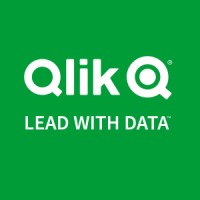Or listen in your favorite podcast app
Apple Podcasts / Google Podcasts / Stitcher
Not many CIOs are walking around with Emmys. But when you’ve had a career as broad as Sean Wechter, the fact that he and his teams have become Emmy-Award-winners is not all that surprising. From Dell to Comcast, to USA Today to now, as the CIO of Qlik, Sean has seen and done it all. On this episode of IT Visionaries, he walks us through some of his experiences, and he explains the current state of data and what CIOs should be focusing on in their organizations.
Best Advice: “Be careful that you’re rewarding technology skills or the technology team. Make sure the balance between technologists and technology coordinators is right. Reward and recognize technical chops first.”
Key Takeaways:
- Working in media teaches you the importance of countermeasures
- Consolidation and a search function are coming next in the world of streaming
- Data literacy is the ability to explore data
Sean’s Origins
Although Sean always believed he would end up on Wall St., when he graduated from business school he instead took a job with Phillips, where he fell in love with technology. From there, his journey was a steady climb upward at some of the most well-known companies around, including Dell, Comcast, Gartner, USA Today, and others. Along the way, Sean and his teams won multiple Emmy awards for projects including the X1 Xfinity interface, and the voice command remote control, and a website redesign for the NBC station in Seattle.
“It's fun and it's good, but the awards are just byproducts. Success just comes from teamwork and all people contributing.”
Sean’s previous experience in media
Through his work in media, Sean has been in a number of high-pressure situations including the Super Bowl and national elections. Working through those successfully is an exercise in operational excellence, teamwork and thinking through and preparing for all scenarios. Among the lessons he learned was “don’t launch on a Friday.” The reason? If things go wrong, you’re going to be working a lot of overtime to get it straightened out and asking people to come back after they have left on a Friday could lead to some dicey situations.
“It's been burned into my brain that you want three countermeasures for every core system and you want five resolvers for every core system.”
“I liked the idea of the essential tension of if you make something that's fragile, you feel the pain, then you're most incented to make sure that it's robust and standard. But I also am empathetic to the work-life balance and the impact when that happens. Ultimately, it creates a great feedback loop and the systems get stronger in the end.”
The world of streaming
Sean was involved int he very early days of streaming when that meant taking content on hard drives from HBO and converting the content to different file formats to put on various platforms. Today, streaming is overtaking traditional cable, and the amount of content available is overwhelming. Sean believes that we will soon enter a period of consolidation and that we will soon have a search function that will point us to the content we want.
“I think the notion of the amount of content available for everyone is crazy abundant. And so the ability to have a Google-like experience to search and discover content is going to be the next big step…. I think the ability to discover content, the YouTube experience where it's surfacing things that are interesting to you, you're going to see that in more places, far and wide in different content sources working on the network side.”
Now at Qlik
Qlik was a really cool space and Sean was intrigued by the idea of coming in to help run the technology team. He had run BI teams before and he believes that the data path and security path are the two industries where potential growth can happen.
State of data and business intelligence
Currently, Sean is really excited about an initiative at Qlik around data literacy. The idea is that if you can source data yourself, analyze it and argue with it, you’ll kick the butt of competitors. If you can’t you’ll get left behind. Sean says that data literacy is all about the ability to explore data on your own. And, if you don’t have data to make informed decisions you will make poor decisions. In this industry, things are constantly getting more volatile and complex so those who can efficiently explore and use data will be able to separate themselves.
“It used to be you'd create a BI team, they were a center of excellence, they publish a bunch of reports and people would be happy with those reports and, ask them questions and go and iterate. Now the game has change where your knowledge workers have to be able to explore that data themselves.”
“Being able to have near-real-time data from key systems to be able to iterate and adjust to rapidly changing environments and so forth is key."
Mentions:





